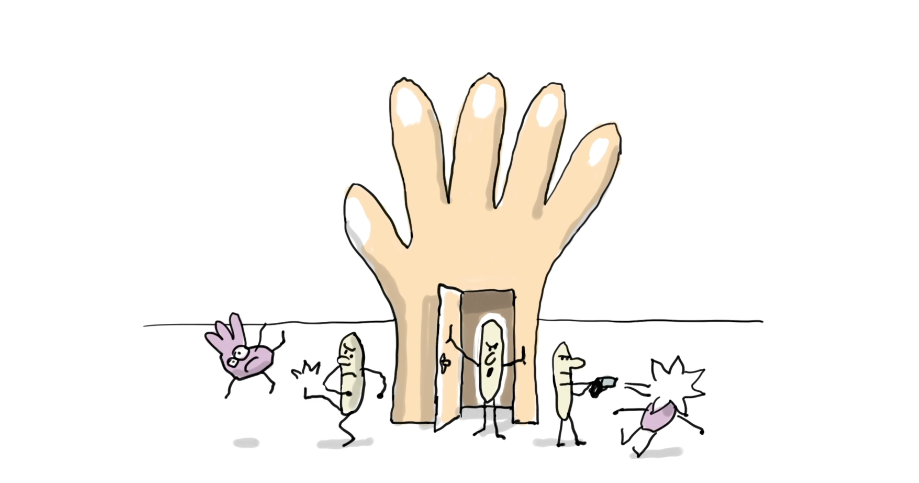What is immunity?
Immunity is the capacity of the human body to defend itself against substances or infections…
… such as parasites, bacteria or viruses that can make us ill.
When we say someone is “immunized” against a disease, that means they can’t catch it any more.
But how do you become “immunized”?
From birth, our body defends itself against intruders: it stops them from getting in, destroys them or gets rid of them.
The body is also capable of making new defenses throughout our lives: that’s “acquired immunity”.
This can develop after coming into contact with bacteria or a virus.
The body’s immune system produces antibodies; microscopic soldiers that fight the intruder.





 Retour
Retour